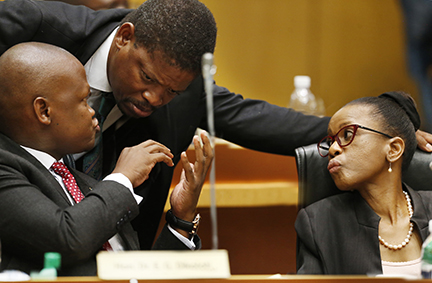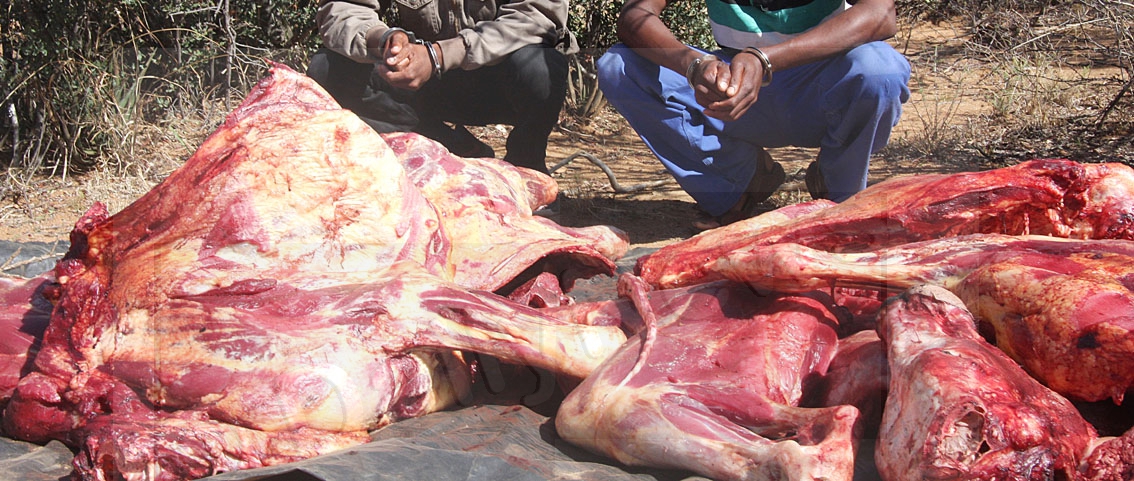TNDP Chapter 7 seeks human social development
13 Dec 2022
Chapter seven of the Transitional National Development Plan (TNDP) seeks to improve human and social development in the country.
Key to the chapter presented before Parliament by the Assistant Minister for State President Mr Dumezweni Mthimkhulu Monday are the national principles of democracy, development, self-reliance, unity, and Botho, as well as the mindset change espoused in the Reset Agenda.
Expanding further on the chapter, Mr Mthimkhulu said government’s areas of interest were improving access to services such as healthcare and education.
“This also includes meeting some of the pillars of the National Vision 2036 and the United Nations Sustainable Development Goals (SDGs) on ending poverty and hunger and attaining food security and gender equality,” he said.
He said government sought to ensure that people were assisted through programme graduation strategies to progress from a state of poverty.
He said government would focus on the eradication of absolute poverty through creation of sustainable income-generating activities and economic empowerment programmes.
Mr Mthimkhulu said government would also invest in sports entrepreneurship as well as culture and heritage initiatives, citing the development of the National Creative Industries Strategy, establishment of the National Arts Council, and advancement of sports governance and tourism.
He noted that government would implement means of fusing information communication technology (ICT) into education as well as the use of multiple pathways and the enhancement of access, equity and the quality of learning outcomes.
Adding to the presentation, Acting President Slumber Tsogwane said the Rural Development Policy and the Remote Area Development Programme were some of the ways through which government ensured social justice.
He said the recent devolution of districts would ensure decentralisation and quicker delivery of services.
Mr Tsogwane emphasised that government had a strong track record of dealing with economic challenges, citing the 2008 economic downturn caused by the global economic recession and the socio-economic challenges due to the COVID-19 pandemic.
He said government now sought to broaden the national economic base in order to make Botswana more resilient to such external shocks and to ensure sustainable development.
For his part, the Minister of Transport and Communications, Good Hope/Mabule legislator, Mr Eric Molale said government was driving the country towards equal opportunities for all.
He said infrastructure development could be the catalyst for enhancing livelihoods, noting how improved roads facilitated economic growth.
He said his ministry would employ new methods and technologies in construction of upcoming projects to ensure speedy development.
Mr Molale further said the state would also mobilise private sector financing of development projects, including the use of alternative funding methods and means to manage infrastructure such as toll gates on national roads.
Okavango legislator, Mr Kenny Kapinga said his constituency was economically depressed since research had revealed that most of the people in the constituency lived in poverty.
He expressed the need for a special package of social development projects to be implemented in areas such as Okavango, where the level of poverty and underdevelopment was higher than elsewhere.
He further said investing in the quality of housing, education and healthcare in Okavango should be given priority.
Mr Carterpillar Hikuama, Ngami MP, said the two-year period for implementing the Transitional National Development Plan was short and could present some challenges, especially given the plan’s broad goals.
Mr Hikuama said government needed to work on time-bound practical plans with targets. ENDS
Source : BOPA
Author : Pako Lebanna
Location : GABORONE
Event : Parliament
Date : 13 Dec 2022




